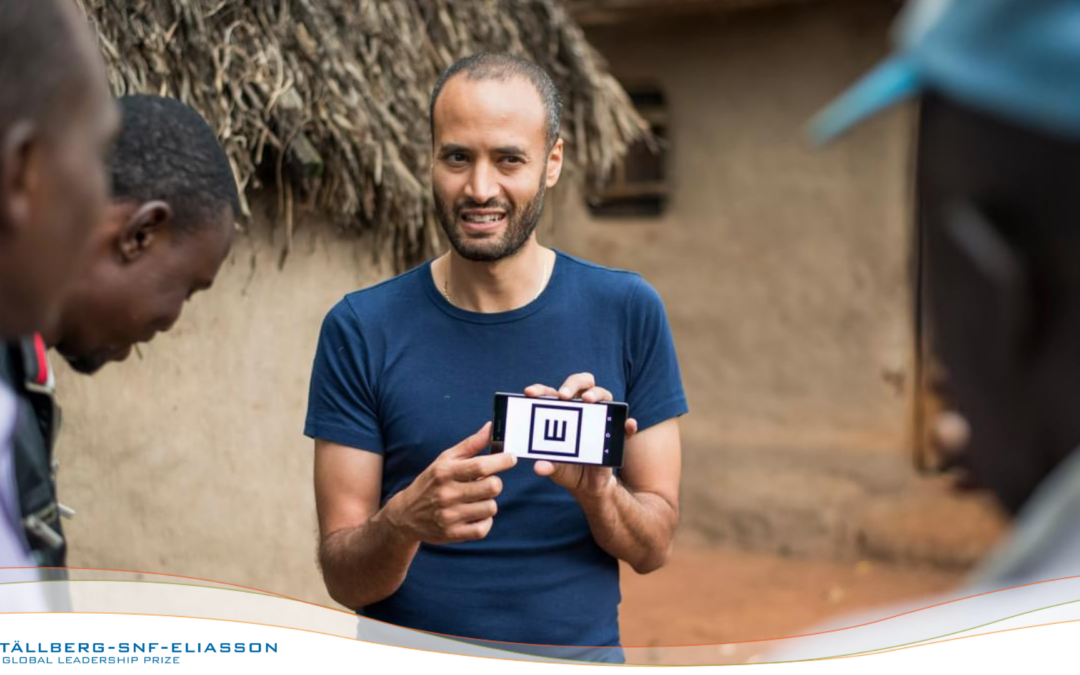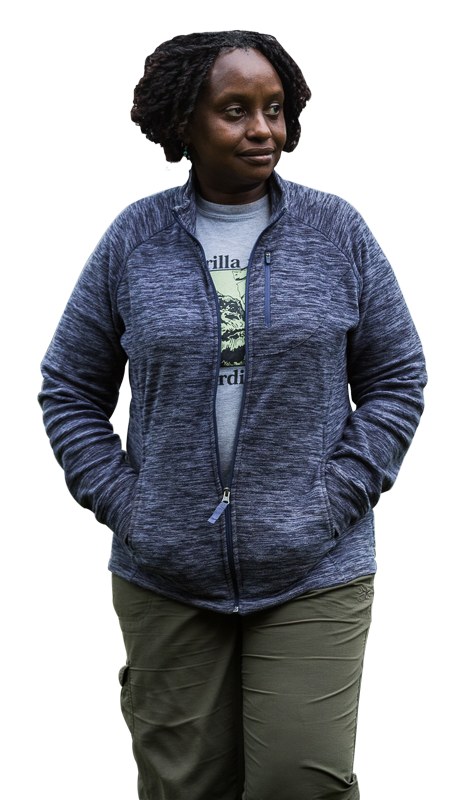Meet the Winners: Professor Andrew Bastawrous
Professor Andrew Bastawrous is a man on a mission. He wants to end avoidable blindness and vision impairment everywhere in the world, and he has a powerful tool: his smartphone.
“The year I first got a pair of glasses as a 12-year-old completely changed the trajectory of my life; it was mind-blowing because the before and after was night and day in terms of my academic performance and social connections.”
Professor Bastawrous, a Winner of the 2023 Tällberg-SNF-Eliasson Global Leadership Prize, is the co-founder and CEO of Peek Vision. Peek is a social impact organization that uses smartphone technology to increase access to eye care in some of the most challenging places in the world. By training, an ophthalmologist and an eye surgeon, Bastawrous also holds a professorship in global eye health at the London School of Hygiene & Tropical Medicine. This is where he undertook his Ph.D. and was mentored by (and now works with) some of the world’s leading public health and global eye health experts.
Bastawrous’s leadership journey started with a simple insight. “When you are a hospital surgeon or physician, you’re always busy. Whichever part of the world you’re in, there’s always work. But what you don’t see is who’s not here, who’s not coming…It dawned on me that when I was working in rural Kenyan clinics, we’d have queues of people, many of whom were vision impaired and could be treated straight away…And then when my team and I conducted a large survey, the data showed more than 90% of people in need of eyecare had never seen an eye care professional.” He realized his challenge was not to spend yet more hours treating patients, but to find ways that more—millions more—could be treated without his direct intervention.
Enter imagination and data intelligence. Bastawrous and his colleagues created Peek, a smartphone vision-testing app that anyone can use, even in the hardest-to-reach locations. The app is embedded in a powerful system for eye health data capture and analysis. With Peek, eye health program providers can follow the patient’s journey from screening to treatment and identify where patients are left behind.
Professor Bastawrous’s vision was of thousands of people equipped with smartphones, finding visually impaired people who had thus far remained invisible, providing testing, and connecting them to the right resources. With his team, he spent years validating the technology through multiple studies and randomized control trials providing evidence for partner organizations to use Peek in their own work.
But the eye health sector required more than technology; it, like many others, needed a paradigm shift. “It’s not about how many people you’ve screened or treated, it’s about how many you haven’t screened or treated…It changes the optics so you start to really pay attention to those being left behind.” To do that, Andrew realized that making inequity visible wouldn’t alone lead to the change of behaviors required and that the structure of incentives and disincentives would also need to change. “We had to explore ways to financially incentivize the entire system to be around equity. Healthcare providers are usually paid the same amount for the treatments they provide to people, but not all people cost the same to bring into the healthcare system. Currently the rural widowed woman, who might have the greatest need but be least likely to receive care, costs the healthcare provider four times as much to find and bring to the hospital compared to the educated man in the city. This incentivizes treating those who are easier to reach.”
That recognition of this inequity and the fact that eye health, despite being one of the most cost-effective interventions in the world, is chronically under-resourced, led Bastawrous to co-found the Vision Catalyst Fund (VCF). Launched in 2018 as a partnership among a group of private companies, banks, philanthropists and NGOs with an initial goal of $1 billion, the VCF deploys funding where it can be catalytic, taking calculated risks to meet the needs of the vision crisis in innovative ways.
The fund’s founding partners include Standard Chartered, UBS, Essilor, James Chen, and the International Agency for the Prevention of Blindness. The Vision Catalyst Fund plans to grow its grantmaking significantly in the future.
Over the last decade, Peek has been proven to be accurate, reliable, and cost-effective in various settings and contexts. It has been used to screen over 5,000,000 people in remote communities. In the process, Peek has been used to train and empower local health workers, teachers, and volunteers to become eye health champions in their own communities.
However, there is still a lot of work to do. According to the World Health Organization, there are 1.1 billion people in the world living with untreated vision loss which could be prevented or cured.
That’s a huge challenge, but Bastawrous has already come a long way from the days when he had to choose between his personal practice and the possibility of a global game-changing approach to vision. “Now, as a global community we have the blueprint, at least, for how this unnecessary problem can be solved at scale for tens or even, hundreds of millions of people.”
That’s global leadership.


